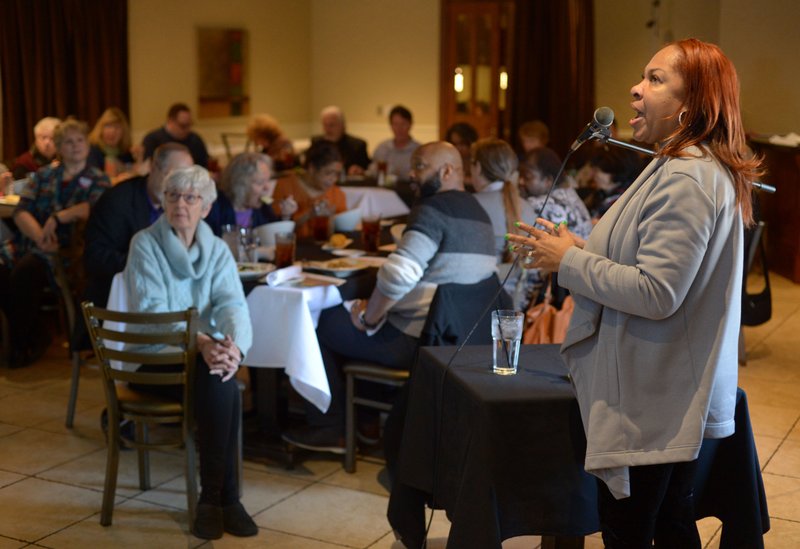FAYETTEVILLE — Stigma is a main reason African-Americans don’t seek treatment for depression.
Signs, symptoms of depression
If someone has been experiencing some of the following signs and symptoms most of the day, nearly every day, for at least two weeks, this person may be suffering from depression:
• Racing thoughts
• Persistent sad, anxious, or “empty” mood
• Feelings of hopelessness, or pessimism
• Irritability
• Feelings of guilt, worthlessness or helplessness
• Loss of interest or pleasure in hobbies and activities
• Decreased energy or fatigue
• Moving or talking more slowly
• Feeling restless or having trouble sitting still
• Difficulty concentrating, remembering, or making decisions
• Difficulty sleeping, early-morning awakening or oversleeping
• Appetite and/or weight changes
• Thoughts of death or suicide, or suicide attempts
• Aches or pains, headaches, cramps or digestive problems without a clear physical cause and/or that do not ease, even with treatment
Source: National Institute
of Mental Health
Community and state leaders gathered Thursday for a luncheon titled “Black Minds Matter,” part of Compassion Fayetteville’s Black History Month events.
Kamra Mays, diversity chairwoman for the Arkansas Psychological Association, discussed depression and anxiety and how it specifically affects African-Americans while guests dined at Mermaids on College Avenue.
Depression is the leading cause of disability in the United States for residents ages 15-44, Mays said. The average age of onset is 32, she said.
The average black person in American is more likely than the average white person to have depression, Mays said, but far less likely to seek treatment.
Stigma is one of the biggest issues, she said.
“We believe that depression, as African-Americans that is, is a necessary condition of life and must be endured. We fear being labelled as insane, already battling being called a lot of other names,” she said.
African-Americans are 20 percent more likely to experience serious mental health problems than the general population, according to the Health and Human Services Office of Minority Health.
Mays said she wanted to avoid talking about medication, and focused on spirituality, cognitive behavioral therapy, exercise and diet as possible solutions for these common mental illnesses.
Terry Bankston brought up how he felt family caregivers were especially in need of mental health services. This affects almost everyone at some point, he said.
“When people that are close to you or around you get sick, the support person doesn’t have access to support. On top of having all their stuff, they are taking on all this stuff they may not have knowledge of or experience of doing before,” Bankston said.
They need mental health services too, Mays said. Situational stressers, such as taking care of a loved one, are a valid reason itself to seek counseling or other services.
De’Andre Jones is the Fayetteville Civil Rights Commission chairman and co-leader of the city’s Black History Month. He said it’s a complex topic that has so many components.
“We definitely have to be strategic and very wise when we approach these situations, because there are so many different layers,” he said. “We are definitely working to face and combat these issues as best as we can.”
This “Lunch and Learn” event is hopefully the first of many, Jones said.
“We are hoping to create more regular opportunities to learn about issues that definitely impact the African-American community but that there is little awareness (of),” he said.
All the Black History Month events are a springboard to create community awareness and involvement, he said.

